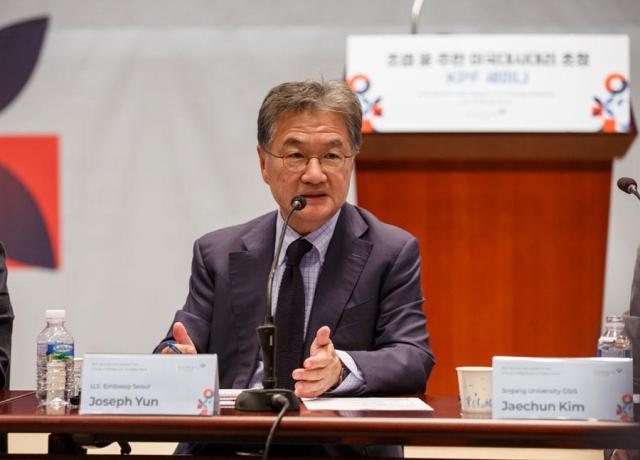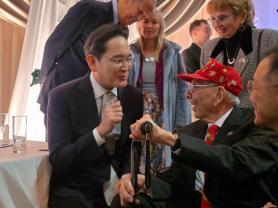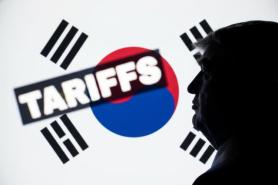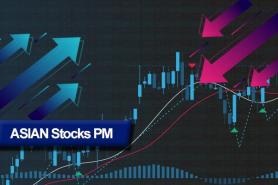
Hosted by the Korea Press Foundation in central Seoul on Tuesday, the seminar offered an opportunity to hear from Joseph Yun, the Chargé d'Affaires ad interim at the U.S. Embassy in Seoul, through in-depth discussions about recent developments and upcoming challenges in bilateral relations.
Beginning with opening remarks by the Korean-American career diplomat, the seminar provided a comprehensive analysis of key issues shaping the bilateral relations, addressing diplomatic strategies and future tasks amid shifting global geopolitical tensions that continue to reshape regional alliances and security frameworks.
Expressing "regret" over President Lee Jae-myung's first meeting with U.S. President Donald Trump falling through at last week's Group of Seven (G7) summit in Canada due to Trump's early departure, Yun conveyed his hope that Lee would visit Washington as soon as possible to resolve various pending issues including broader regional alliances, tariff-related agreements, defense cost-sharing arrangements and other matters.
"It was very unfortunate that the summit did not take place due to scheduling conflicts," Yun said, adding that he is "100-percent confident" it will be held during his tenure.
Dispelling concerns about any veiled distance between the two allies raised by some, Yun, who spoke in both English and Korean, reiterated that there is "no doubt" about the bilateral relationship, describing it as one of the "most successful alliances," which he believes will remain unchanged under the Trump administration.
Touching on the Pentagon's recent remarks about a "new standard" for alliances with allies worldwide including those in Asia, which calls for spending 5 percent of their gross domestic product (GDP) on defense, he also brought up a possible readjustment in cost-sharing for the upkeep of American troops here along with "other costs," which may point to the regular deployment of U.S. strategic assets on the Korean Peninsula, not only to counter North Korea, but also to keep China in check.
In a follow-up panel discussion chaired by Kim Jae-cheon, a professor at Sogang University, participants including editors and news writers in charge of foreign affairs and security engaged in a lively debate, sharing insights from diverse perspectives to explore ways to strengthen bilateral ties and promote cooperation.
When one participant asked about any shifts in policies toward North Korea and Trump's anticipated re-engagement with its leader Kim Jong-un, Yun explained, "It takes two to tango," suggesting that any future talks with Pyongyang could take place if North Korea is willing to engage, although Washington "has not yet heard from the North Korean side."
But he dismissed speculation that the U.S. would recognize North Korea as a "legitimate nuclear power," as Trump has frequently implied. He emphasized that Washington remains committed to the complete denuclearization of North Korea, which should not be confused with merely acknowledging its possession of nuclear weapons. But he cautioned against laying out the ultimate goal of denuclearization at the initial stage of talks, stressing the need for a more strategic and "smarter" approach to negotiations.
Yun, who began his diplomatic career in 1985, served at embassies in several Asian countries including Hong Kong, Indonesia, Malaysia, South Korea, and Thailand before assuming his current post in January this year. He will remain in the role until a new U.S. ambassador is appointed. He graduated from the University of Wales and London School of Economics and Political Science and worked as an economist for a U.S.-based think tank.
Copyright ⓒ Aju Press All rights reserved.



